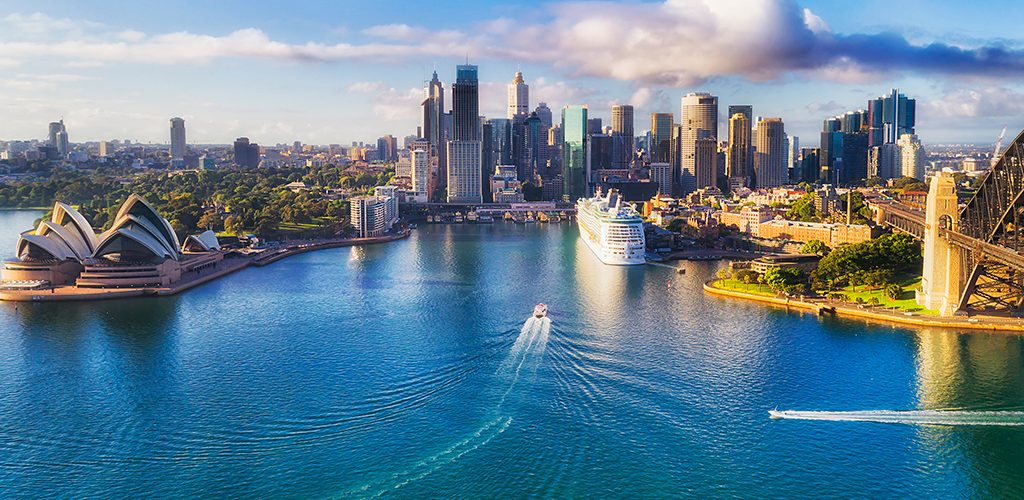Following next week, fully vaccinated overseas students from all around the world will be permitted to enter Australia without the requirement to request a travel exemption. The statement was made by Prime Minister Scott Morrison on 22 November.
While the university organizations such as Universities Australia and the Group of Eight applauded the announcement, higher education sources say they were caught off guard and are scurrying to adjust their strategies. Only a limited number of students had been able to petition for a travel exemption to enter the nation prior to the prime minister’s statement.
They comprised Australian government-funded research students, medical, dentistry, nursing, and allied health students on work placements, and secondary school students in years 11 and 12. This is a substantial shift from a month ago when it was still unknown how and when the over 1,45,000 international student visa holders will be allowed to enter Australia.
On October 15, New South Wales Premier Dominic Perrottet stated that all fully vaccinated international immigrants to the state would be exempt from quarantine requirements beginning November 1.
The prime minister, on the other hand, put the brakes on NSW’s plan to open up to the rest of the globe, saying: It is only open to Australian residents and citizens, as well as their close family, according to the federal government.
States were put in a precarious position as a result of this ambiguity. Prior to Morrison’s statement, both NSW and Victoria — the states with the most international students – had devised trial programs to reintegrate them. From early December 2021, the NSW plan was to enable up to 250 overseas students studying with state education providers to return every two weeks.
By the end of the year, that number would have risen to 500 students every fortnight. Victoria’s approach would initially enable 120 presently enrolled students to join the state each week, recommended by universities. Over time, the numbers would be increased to include additional students. Universities in both states were scrambling to organize specifics like prioritizing students chosen for the programs and chartered planes.
These trial initiatives appear to have been overtaken by the Commonwealth’s removal of limitations on international travel. The current limitations of 250 per fortnight in NSW and 120 per week in Victoria will most likely be lifted. The only components of the pilot programs in NSW and Victoria that might survive are the already scheduled chartered flights. These will relieve some of the pressure on commercial airlines, who may require more time to ensure capacity.
The University of Sydney has updated its information, saying: “The pilot program will continue as planned, with the University providing a supported return program for current students who are eligible and choose to participate. The first charter flight of international students is due to arrive on 6 December 2021. Eligible students will be contacted directly as more flights are announced.”
The majority of the states’ institutions, on the other hand, have yet to revise their plans. Quarantine restrictions for fully vaccinated arrivals had already been eliminated in both NSW and Victoria. However, international students travelling to other countries may be subject to a variety of restrictions. Queensland requires international students having to pay for a two-week stay in an isolated quarantine facility.
Considering the state’s plan to lift immigration restrictions only until a 90 per cent two-dose vaccination objective is met, entering Western Australia may be impossible entirely. It’s also worth noting that foreign student pilot programs are only available at universities, where only about half of all international students attend.
Students in various types of foreign education, including vocational education and training and English language courses, can now begin to arrive, thanks to the latest declaration. Furthermore, it is uncertain what the statement means for international school students under the age of 18, as individuals under the age of 18 are less likely to be immunized. Under the new regulations which are expected to come into effect from December 1, travellers must:
- Depart from their home country
- Be fully vaccinated with a completed dosage of a vaccine approved or recognized by the TGA
- Hold a valid Australian visa
- Provide proof of their vaccination status
- Present a negative Covid-19 PCR test taken within three days of departure
Skilled and student visa holders, as well as humanitarian, working holidaymakers, and provisional family visa holders, are all eligible. School pupils are more likely to want to come early the following year anyway. However, given Australia’s labour shortages in industries that typically hire international students, such as hospitality, overseas students at the tertiary level may be interested in arriving soon to work here over the summer. The central issue today is how long airlines will take to reach full capacity. This would have been a stroll in the park before Covid.
In 2019, Australia received 21.3 million overseas arrivals or around 1.8 million inbound passengers per month. International air traffic is expected to be only 40% of pre-Covid levels in 2021, according to the International Air Transport Association.


















Add comment